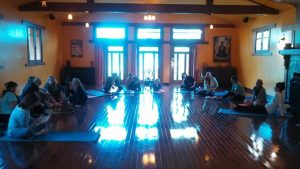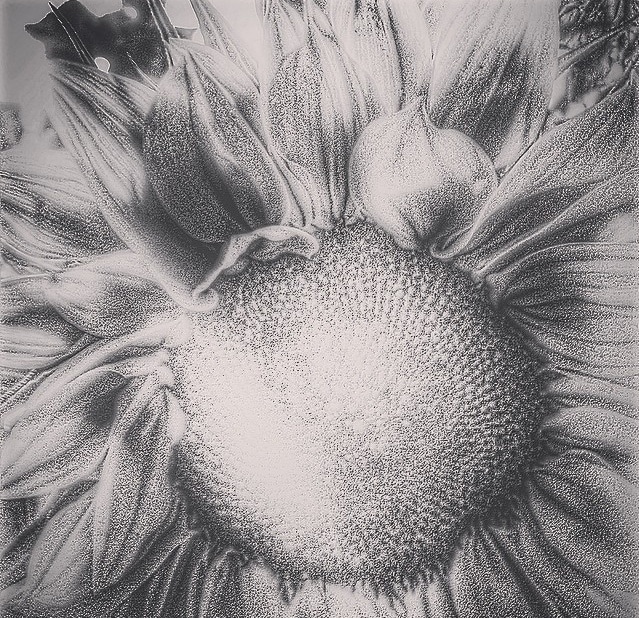When my sister calls me in the morning much earlier than she usually does, I know there is something specific she wants to tell me, and I am proved right as she shares the news of the death of a successful young comedian and writer the day before. She knows his sister well. I am not familiar with his name, but I know why she called to tell me.
It doesn’t quite hit me yet as I talk to her on the phone. “Oh my God, how terrible,” I say, “I can’t even imagine,” which is something that comes out of one’s mouth automatically when discussing these things, but I correct myself when I realize I CAN imagine, because it happened to us. And, then I think to correct myself again, because it happened to HER, our second sister, but I realize I was right the first time, because it’s still happening to us.
I google the comedian and read about his successes. Writing and producing hit television shows. Famous friends and peers. Regular columns on comedic sites and youtube clips of standup shows. I read his articles and watch his clips. He is hysterical and talented. A life to be envied. And I think what I always think – what potential; how tragic; what an unfinished life.
But, I don’t really know him, and I knew my sister, so I think about her. Their lives intertwine in my head and I think about being his sister, too. His older sister. What I would have said to him over the years. How I would have supported him but likely lectured him too. How much I might have known and how much he would have kept secret from me, so as not to hear another lecture.
I look through a series of photos of him; the same ones cycled through and attached to the news of his death. He is ordinary looking, a little scruffier in some than others and his face reminds me of boys I grew up with. He was 30 years old – impossibly young to die – and three years younger than my sister was. He still looks like a boy. He still is a boy.
Briefly, I think about drugs, but not in the way I used to. Not in a critical and judgmental way. Instead I think about sadness. I think about anxiety and pressure and trying desperately to rise above emotions and thoughts and obsessions that are tiny thorned fingers digging into your soul and pulling you down into the dirt with them. I think about finding something that might take you away from that even for a few moments and how desperate you might be to hold onto it and hard it would be to let go.
I think about my own life and what gets me through it, and what a strange concept it is to feel the need to push myself along. I think about not enjoying life most of the time, wasting it, rushing through most moments to get to the ones that I have decided matter more. The next holiday. The next weekend. The next vacation. The next online purchase. The next glass of wine.
I think about being 35 when my sister died and not being able to make sense of it. This doesn’t happen to people like us. How did this happen? How could this happen? I think about blame and a desperate need to place it. And the agony of guilt, which I wear comfortably like a pair of worn-in jeans. I am used to guilt. Guilt proves I care.
What could I have done differently? How could I have saved her? But, I already know the answers.
“There’s nothing you could have done,” says David Sedaris, after I wait on line to have my book signed. During his reading, he mentioned his sister who committed suicide, which makes me think of my sister again, and when he notices a tattoo of a pair of glasses on my forearm, he asks about it and I tell him it’s in tribute to her. I comment that I didn’t know about his sister and say something about feeling upset that I couldn’t have done something, for my sister, which prompts his statement. I admire his ability to not feel a sense of responsibility about his sister, or at least I think I do.
I watch my young sons and try to live in this moment of their innocence, when the hardest part of the day is finding a pair of clean socks. I think about their futures, their inevitable suffering and struggles. What am I doing today to shape their tomorrows? How can I stop their sadness and prevent their pain? What mistakes have I already made? What mistakes did my parents make?
I think about loss. I think about the phrase ‘so sorry for your loss’. I think about how many times I said it before I could possibly begin to understand it. I think about how incorrect it is to use it, because it’s not just one loss, but a series of losses that happen over and over, every time a baby is born, or a wedding is celebrated or a vacation is enjoyed or a birthday is marked or hundreds of other tiny moments that might happen in between. I think about losing things like your keys or a twenty dollar bill that you thought was in your pocket. Things that might be found again. I decide to stop using the word ‘loss’ in the context of death from now on.


“Here’s the thing about Jen Pastiloff, folks. Here’s the revolutionary thing.
She listens.
She listens with an intent focus, a focus that follows your words inside you. Because she has hearing problems, she watches your lips as you speak, and she plucks the ash of your words from the air and takes it inside herself and lays it beside her heart, where before too long your words start beating as if they were strong, capable, living mammals. And then she gives them back to you.
Boiled down, this is the secret to Jen’s popularity. She can call what she does Beauty Hunting–she is for sure out there helping people find beauty. She can start a campaign called “Don’t be an asshole” and remind us all to stop a second and please, please, please be our better selves. She can use words like attention, space, time, connection, intimacy. She can ask participants to answer questions like What gets in your way? What stories are you carrying around in your body? What makes you come alive? Who would you be if nobody told you who you were? All of that is what it is. But why it works is because of her kind of listening.
And what her kind of listening does is simple:
It saves lives.” ~ Jane Eaton Hamilton.
Featured image by Tiffany Lucero.


[…] An Unfinished Life – The Manifest-Station. […]